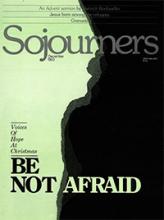The invasion of Grenada finally gave the Reagan administration what it has been yearning for: a clear-cut military victory over communism. In this case the forces of communism were represented by 700 Cuban construction workers and military advisers.
For several years the bipartisan right wing in Washington has been bemoaning the "Vietnam syndrome," a malady that has supposedly prevented the United States from using its military forces in the far-flung arenas of real and imagined Cold War conflict. With the apparent success of the Grenada operation, both militarily and in the public opinion polls, many will consider the Vietnam syndrome cured at last.
The public accepted the Grenada invasion with relative ease, perhaps because it helped assuage the feeling, widespread after the massacre of Marines in Beirut, that we were under attack and powerless to respond. Also, the press and Congress labored under a surprising ignorance of Grenada's recent history, and still do.
The key to the administration's selling of the Grenada invasion, however, was probably the unprecedented curtain of censorship it dropped around media coverage of the brief war. By refusing to allow reporters onto the island until the fighting was essentially over, the administration was able to make sure that its version of events was the only one available in the first crucial days of the invasion. By the time reporters did reach the island and began to question administration claims, their stories were too little and too late to counter the first impression already imposed on the public mind.
Read the Full Article

